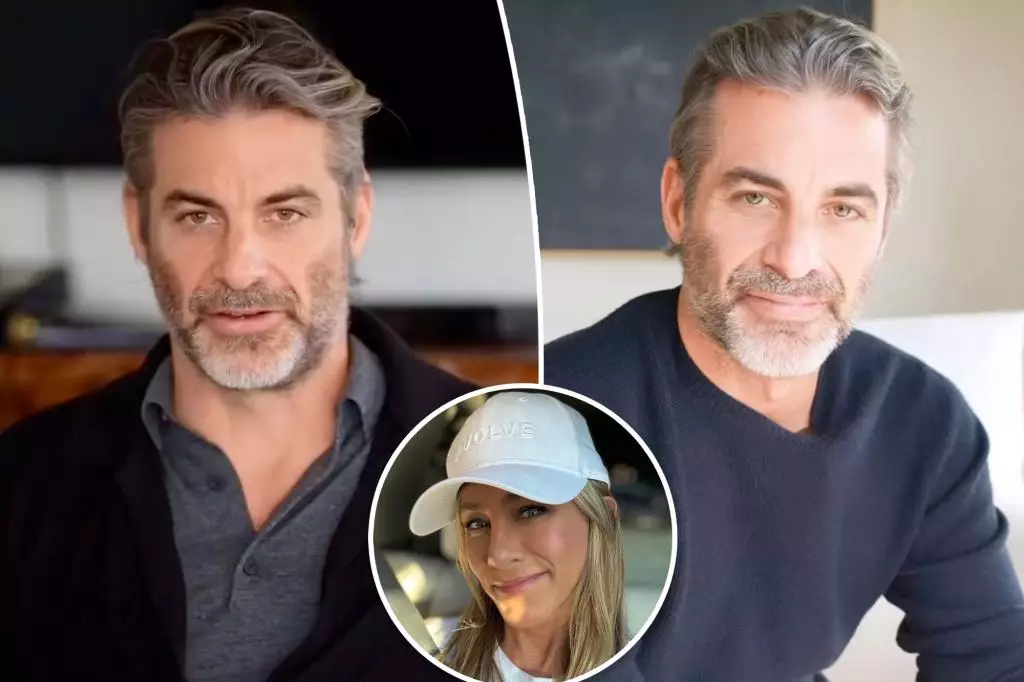Jennifer Aniston’s rumored romance with Jim Curtis marks a notable departure from the often superficial narratives that tend to dominate celebrity relationships. While tabloids frequently latch onto surface-level details—photos, sightings, or staged appearances—this developing story touches on themes of genuine personal growth, shared philosophies, and the pursuit of holistic well-being. Instead of dismissing this pairing as mere gossip, it invites us to reconsider what we value in celebrity relationships: authenticity, mental health awareness, and mutual empowerment. Aniston’s willingness to explore connections beyond the glamorized Hollywood lens suggests a desire for depth, connection, and perhaps even healing, which she might perceive as vital amid an industry obsessed with image.
Jim Curtis: More Than a Hypnotist—A Symbol of Inner Transformation
Curtis’s persona extends far beyond the typical wellness influencer. With 25 years of experience, he brands himself as a “wellness pioneer” and “master hypnotist,” advocating for personal transformation through hypnotherapy, manifestation, and intuitive coaching. His methodology emphasizes releasing mental baggage—trauma, anxiety, toxic relationships—and cultivating a new version of oneself capable of attracting love, abundance, and joy. The narrative Curtis offers resonates deeply with those seeking a way to break the cycle of emotional stagnation and reinvent their lives. His candid admission of overcoming a lifelong chronic illness underlines his authenticity and presents him as an empathetic figure who has truly walked the path of healing, making his appeal more compelling than typical self-help fluff.
Celebrity Endorsements and Validation: A Double-Edged Sword
Curtis’s clientele includes renowned personalities like Miranda Kerr, Julianne Hough, and Chrissy Teigen. These associations serve to bolster his credibility, yet they also raise questions about the commodification of wellness. Are these endorsements genuine transformations or strategic alignments aimed at elevating his brand? While it’s tempting to dismiss such relationships as superficial, they inadvertently shed light on an ongoing cultural shift: the mainstream acceptance of alternative healing modalities. Aniston’s visible engagement with Curtis, especially during relaxed social settings, signifies her personal openness to exploring new avenues of emotional well-being, possibly signaling her desire to integrate holistic practices into her life publicly.
Breaking Stereotypes: From Hollywood Starlet to Wellness Advocate
Jennifer Aniston’s evolving public persona exemplifies a broader trend of celebrities redefining their image through wellness and personal development. The actress, long celebrated for her comedic talent and iconic role as Rachel Green, now appears to be embracing a more introspective identity—one that values mental health, self-awareness, and healing. Her shared moments with Curtis and her apparent endorsement of his books highlight a growing movement among high-profile figures who are unafraid to showcase vulnerability and self-care. This shift not only destigmatizes mental health struggles but also encourages her vast audience to seek similar paths of growth.
The Cultural Significance of Self-Help in Modern Celebrity Culture
The rise of wellness figures like Curtis signals a transformation in how society perceives healing. No longer solely confined to clinical settings, mental health and self-improvement have become intertwined with celebrity culture, often driven by a desire for authenticity and relatability. Jennifer Aniston’s association with Curtis, sharing a book about hypnosis and manifestation, indicates an endorsement that normalizes these practices. It suggests a collective acknowledgment that healing is an ongoing process, and that even those in the limelight seek ongoing growth. For many fans, seeing their idols prioritize mental well-being offers a powerful message—that vulnerability and self-care are signs of strength, not weakness.
Interpersonal Dynamics and Public Perception
While curiosity about Aniston’s personal life persists, her willingness to publicly explore new relationships underscores an increasing comfort with authenticity. The accidental (or perhaps deliberate) uncovering of her getaway with Curtis in Mallorca, alongside friends like Jason Bateman, reveals her approach to social media and paparazzi—less guarded, more open. This transparency could signal her desire to shift the narrative from Hollywood’s romantic fantasy to a more grounded, human experience centered on growth and understanding. Moreover, her sharing of Curtis’s literature hints at a genuine interest in his methods, framing her journey as one of intentional self-discovery rather than fleeting flirtation.

